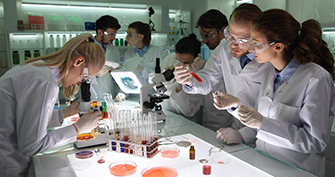How Do Clinical Research Trials Advance Medicine?
Clinical research trials are the most important aspect of the FDA approval process. It helps advance the research of whatever ailment it is aimed at treating, whether the trial is successful or unsuccessful. Participating in clinical research trials offers a host of great benefits and can be a great way to make some extra cash. Keep reading to learn more about how clinical research trials advance medicine and where you can go to sign up for one today.
What Are Clinical Research Trials?
Clinical trials are research studies that test a medical, surgical, or behavioral intervention in people, according to the National Institute of Health. These trials are the primary way that researchers determine if a new form of treatment or prevention, such as a new drug, diet, or medical device (for example, a pacemaker), is safe and effective in people. Often, a clinical trial is designed to learn if a new treatment is more effective or has fewer harmful side effects than existing treatments.
Other aims of clinical research include:
- Testing ways to diagnose a disease early, sometimes before there are symptoms
- Finding approaches to prevent a health problem, including in people who are healthy but at increased risk of developing a disease
- Improving the quality of life for people living with a life-threatening disease or chronic health problem
- Studying the role of caregivers or support groups
Clinical Research Trial Phases
Clinical trials go through multiple phases of testing. Our clinic has many years of experience with Phast 2 through Phase 4 studies. Each phase has a different purpose:
- A Phase 1 trial tests an experimental drug or device on a small group of people (around 20 to 80) to judge its safety, including any side effects, and to test the amount (dosage).
- A Phase 2 trial includes more people (around 100 to 300) to help determine whether a drug is effective. This phase aims to obtain preliminary data on whether the drug or device works in people who have a certain disease or condition. These trials also continue to examine safety, including short-term side effects.
- A Phase 3 trial gathers additional information from several hundred to a few thousand people about safety and effectiveness, studying different populations and different dosages, and comparing the intervention with other drugs or treatment approaches. If the FDA agrees that the trial results support the intervention’s use for a particular health condition, it will approve the experimental drug or device.
- A Phase 4 trial takes place after the FDA approves the drug or device. The treatment’s effectiveness and safety are monitored in large, diverse populations. Sometimes, side effects may not become clear until more people have used the drug or device over a longer period of time.
How Can I Find Clinical Research Trials and Become a Participant?
If you are interested in becoming a participant in a clinical research trial and start earning some extra cash, as well as advancing medicine and your condition, reach out to us. We have many studies to choose from and are adding more all the time.
Visit us at dallasclinicaltrials.com to get started today!
